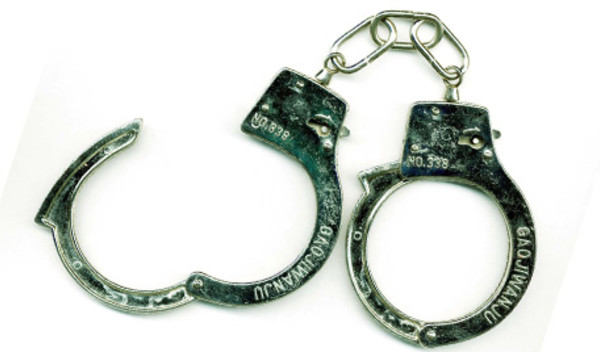

Two men have been jailed over an investment scam which saw 350 victims lose £6.2m in boiler room companies.
Craig Brooks, 37, and Marvin Brooks, 36, both of Sutton Coldfield, were sentenced to a total of two years in prison last Tuesday (June 18) at Birmingham Crown Court, receiving one year each.
The pair ran Bric Global Ltd, Citygate Capital PLC and Rare Earth Commodities Ltd, which between June 2011 and July 2013 cold called victims and convinced them to invest in carbon credits and "rare earth metals".
Bric Global claimed to be investment brokers “specialising in the green energy market” while Citygate Capital PLC claimed to offer investment opportunities in rare earth metals and oxides.
The fraud squad at City of London Police began an investigation into Bric Global in November 2012 after more than 10 reports made to its fraud reporting centre, Action Fraud.
Victims told of being cold called by Bric Global about short to middle term voluntary carbon credit investments, which the brokers claimed could double or even triple within six to 18 months.
But when the victims asked for their investments to be sold Bric Global employees "created obstructions and delayed any sale or return of funds", telling investors they had to wait for the right time to "make a bulk sale" or pressuring them into buying more credits.
In a subsequent search of an address used by Bric Global, officers seized computers and documents showing the brokers used false names and a script called "The Bible", which was used to "rebut victim reluctance and manipulate them into investing".
During the search officers also found documents relating to Rare Earth Commodities, with many victims found to have invested "significant funds" through the company believing they would make profits in a short period of time.
In late November 2012 Craig Brooks visited a bank to close the Bric Global account and withdraw the money from it, but was stopped by the fraud squad as he left and the bankers draft seized.
The City of London Police began an investigation into Citygate Capital PLC after a visit to its office, alongside National Trading Standards, raised suspicions - despite a high telephone bill the company received no post which police said suggested the use of a second address.
Checks with Action Fraud also revealed two reports had been received against the company.
In July 2013 officers carried out search warrants of Citygate Capital PLC offices and diaries and uncashed cheques were seized, with Marvin Brooks contacting the police as a result and he was subsequently arrested and released on bail.
On May 2, 2019, the men pleaded guilty to engaging in a misleading commercial practice at Birmingham Crown Court and two offences of conspiracy to defraud will remain on their files.
A total of £500,000 has been recovered by police, and a further £300,000 in assets has been identified and ordered to be paid over immediately - all of which will be used to repay victims.
Under the Proceeds of Crime Act, Craig and Marvin Brooks could be liable for life for the remainder of the victims’ losses, or until the full amount, plus interest, is repaid.
Detective Sergeant Marek Coghill, of the City of London Police’s fraud squad, said: "This was an extensive investigation reflected in the sheer number of victims who fell prey to the Brooks brothers’ manipulation.
"The financial loss to over 350 victims in this case is substantial, but the toll that this type of cynical and indiscriminate crime can take is far greater.
"These offences are not victimless crimes. They target elderly and infirm members of the public, many of whom are often vulnerable."
rachel.addison@ft.com
What do you think about the issues raised by this story? Email us on fa.letters@ft.com to let us know.
This story has been amended since publication after the City of London Police issued a clarification relating to the relationship between the two defendants and the Proceeds of Crime Act outcome.




